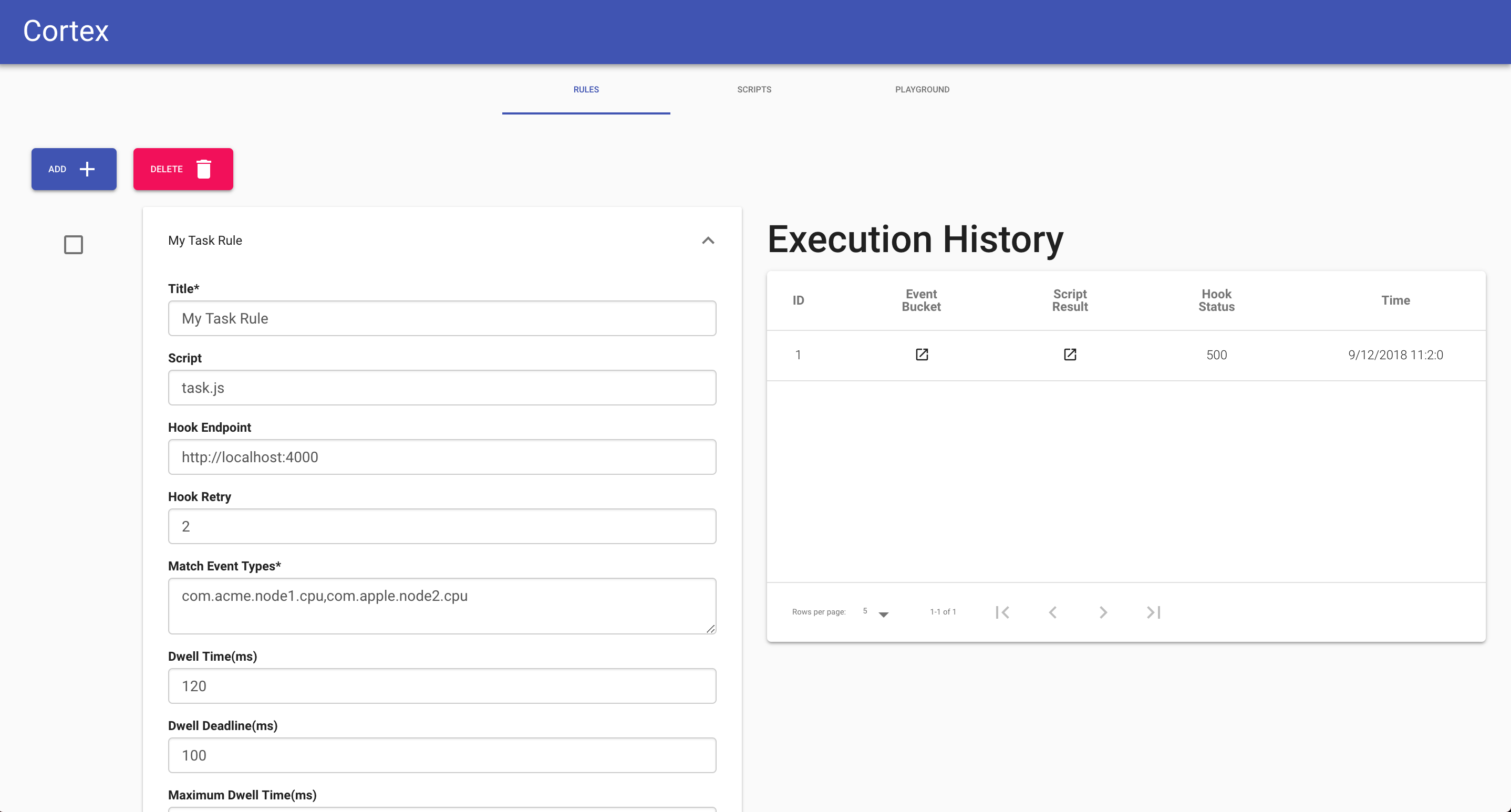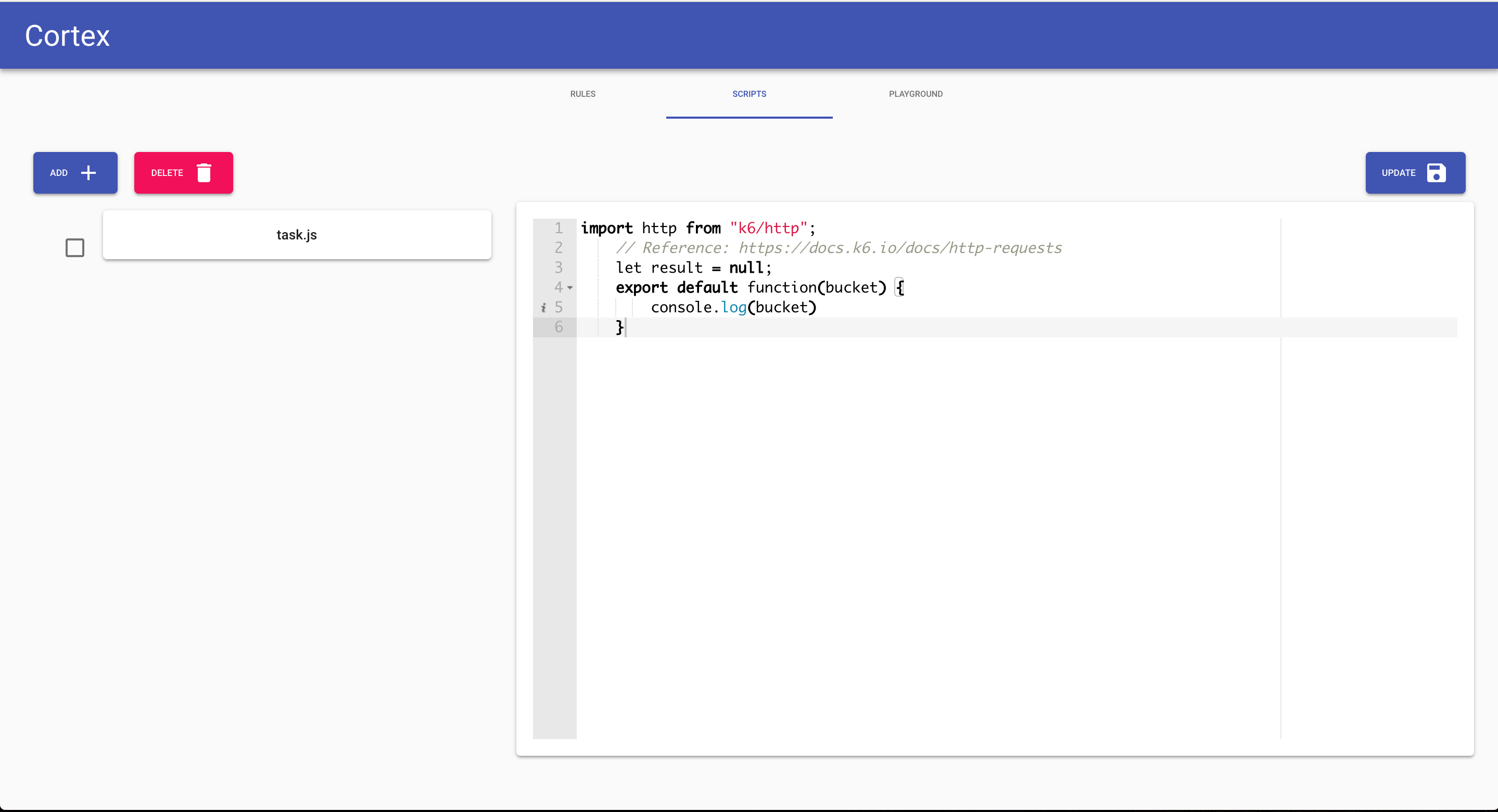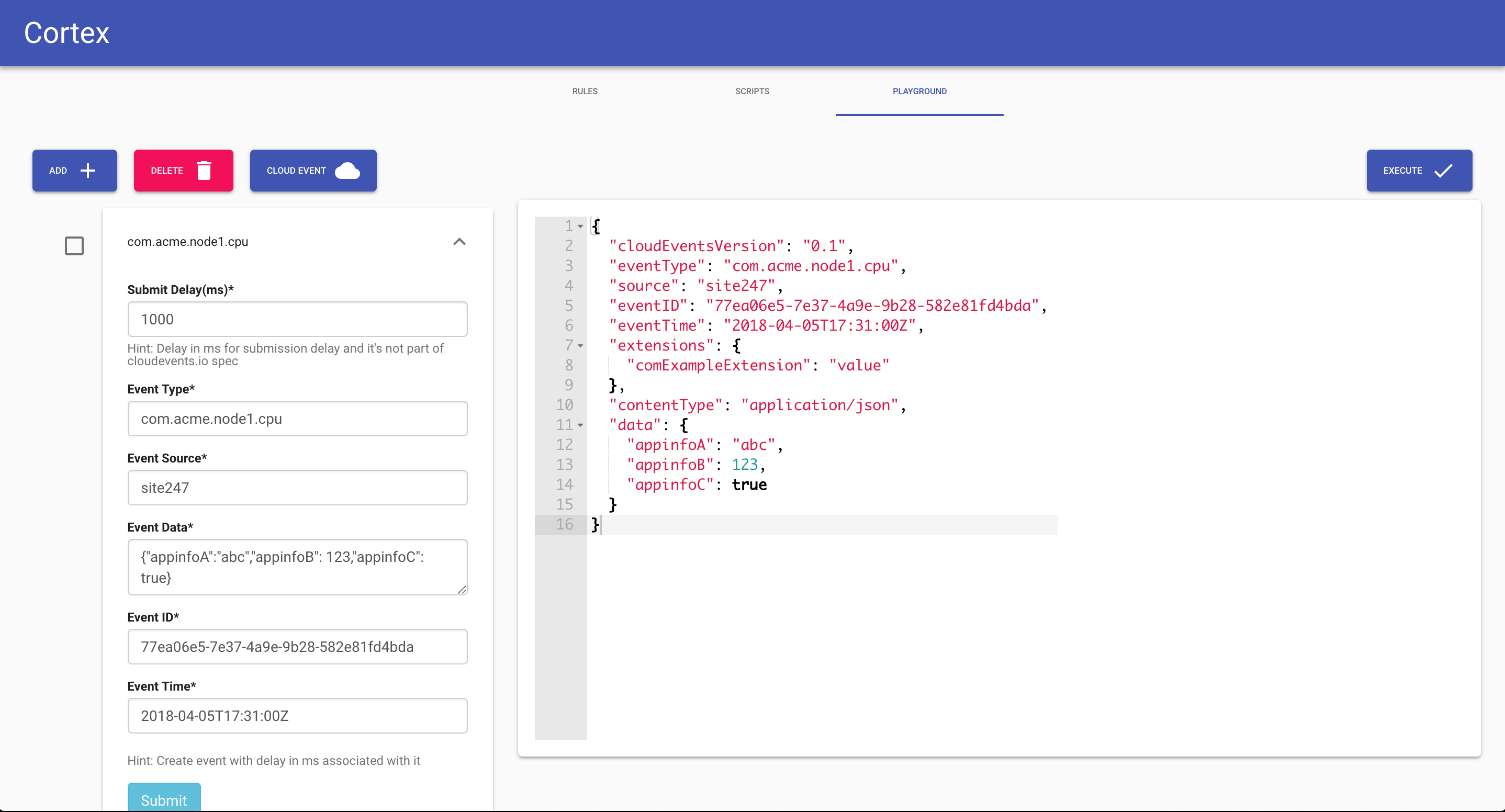https://github.com/myntra/cortex
A fault-tolerant events/alerts correlation engine
https://github.com/myntra/cortex
alerting alerts alerts-correlation-engine boltdb cloudevents correlation event-gateway events events-correlation-engine faas fault-tolerance incident-classification incidents metrics raft rule-engine rules rules-engine
Last synced: 6 months ago
JSON representation
A fault-tolerant events/alerts correlation engine
- Host: GitHub
- URL: https://github.com/myntra/cortex
- Owner: myntra
- License: apache-2.0
- Created: 2018-07-13T11:43:12.000Z (about 7 years ago)
- Default Branch: master
- Last Pushed: 2019-04-09T07:51:16.000Z (over 6 years ago)
- Last Synced: 2025-03-28T08:04:16.372Z (6 months ago)
- Topics: alerting, alerts, alerts-correlation-engine, boltdb, cloudevents, correlation, event-gateway, events, events-correlation-engine, faas, fault-tolerance, incident-classification, incidents, metrics, raft, rule-engine, rules, rules-engine
- Language: Go
- Homepage:
- Size: 4.74 MB
- Stars: 25
- Watchers: 11
- Forks: 14
- Open Issues: 29
-
Metadata Files:
- Readme: README.md
- License: LICENSE
Awesome Lists containing this project
README
**Cortex** is a fault-tolerant events correlation engine. It groups and correlates incoming events for further actions:
creating/resolving incidents/alerts or for doing root cause analysis.
- Built-in regex matcher for capturing events into groups(*here called as a bucket*).
- Built-in ES6 javascript interpreter(https://docs.k6.io/docs/modules) for executing correlation logic on buckets.
- React UI for creating new rules, correlation scripts, list of rule execution history and a playground to simulate correlation executions.
- REST API crud for rules, scripts and execution history.
- Cloudevents input and output(https://cloudevents.io/).
- Fault Tolerance built on top of https://github.com/hashicorp/raft and https://github.com/boltdb/bolt .
- Single fat self-supervising binary using https://github.com/crawshaw/littleboss .
- MessagePack encoding/decoding for raft entries using https://github.com/tinylib/msgp .
The project is **alpha** quality and not yet ready for production.
## Summary:
*Find relationship between N events received at M different points in time using regex matchers and javascript*
To know more about event correlation in general, please read: https://en.wikipedia.org/wiki/Event_correlation
### Similar Commercial Products
1. https://console.bluemix.net/catalog/services/event-management
2. https://www.bigpanda.io/blog/algorithmic-alert-correlation/
3. https://docs.servicenow.com/bundle/kingston-it-operations-management/page/product/event-management/concept/c_EMEventCorrelationRules.html
## Use Cases
- Alerts/Events Correlation
- Event Gateway
- FAAS
- Incidents Management
## How it works:
Cortex runs the following steps to achieve event corrrelation:
1. **Match** : incoming alert --> (convert from site 24x7/icinga ) --> (match rule) --> **Collect**
2. **Collect** --> (add to the rule bucket which *dwells* around until the configured time) --> **Execute**
3. **Execute** --> (flush after Dwell period) --> (execute configured script) --> *Post*
4. **Post** --> (if result is set from script, post the result to the HookEndPoint or post the bucket itself if result is nil)
## Screenshots



## Rules
A rule contains an array of patterns used to capture events in a *bucket*
```json
{
"title": "a test rule",
"id": "test-rule-id-1",
"eventTypePatterns": ["acme.prod.icinga.check_disk", "acme.prod.site247.*"],
"scriptID": "myscript.js",
"dwell": 4000,
"dwellDeadline": 3800,
"maxDwell": 8000,
"hookEndpoint": "http://localhost:3000/testrule",
"hookRetry": 2
}
```
where:
*EventTypePatterns* is the pattern of events to be collected in a bucket.
*Dwell* is the wait duration since the first matched event.
Possible patterns:
```
{rule pattern, incoming event type, expected match}
{"acme*", "acme", false},
{"acme*", "acme.prod", true},
{"acme.prod*", "acme.prod.search", true},
{"acme.prod*.checkout", "acme.prod.search", false},
{"acme.prod*.*", "acme.prod.search", false},
{"acme.prod*.*", "acme.prod-1.search", true},
{"acme.prod.*.*.*", "acme.prod.search.node1.check_disk", true},
{"acme.prod.*.*.check_disk", "acme.prod.search.node1.check_disk", true},
{"acme.prod.*.*.check_loadavg", "acme.prod.search.node1.check_disk", false},
{"*.prod.*.*.check_loadavg", "acme.prod.search.node1.check_loadavg", true},
{"acme.prod.*", "acme.prod.search.node1.check_disk", true},
{"acme.prod.search.node*.check_disk", "acme.prod.search.node1.check_disk", true},
{"acme.prod.search.node*.*", "acme.prod.search.node1.check_disk", true},
{"acme.prod.search.dc1-node*.*", "acme.prod.search.node1.check_disk", false},
```
## Events
Alerts are accepted as a cloudevents.io event(https://github.com/cloudevents/spec/blob/master/json-format.md). Site 24x7 and Icinga integration sinks are also provided.
The engine collects similar events in a bucket over a time window using a regex matcher and then executes a JS(ES6) script. The script contains the correlation logic which can further create incidents or alerts. The JS environment is limited and is achieved by embedding k6.io javascript interpreter(https://docs.k6.io/docs/modules). This is an excellent library built on top of https://github.com/dop251/goja
For the above example rule, incoming events with `eventType` matching one of `eventTypePatterns` will be put in the same bucket:
```json
{
"rule": {},
"events": [{
"cloudEventsVersion": "0.1",
"eventType": "acme.prod.site247.search_down",
"source": "site247",
"eventID": "C234-1234-1234",
"eventTime": "2018-04-05T17:31:00Z",
"extensions": {
"comExampleExtension": "value"
},
"contentType": "application/json",
"data": {
"appinfoA": "abc",
"appinfoB": 123,
"appinfoC": true
}
}]
}
```
## Scripts
After the `dwell` period, the configured `myscript.js` will be invoked and the bucket will be passed along:
```js
import http from "k6/http";
// result is a special variable
let result = null
// the entry function called by default
export default function(bucket) {
bucket.events.foreach((event) => {
// create incident or alert or do nothing
http.Post("http://acme.com/incident")
// if result is set. it will picked up the engine and posted to hookEndPoint
})
}`
```
If `result` is set, it will be posted to the hookEndPoint. The `bucket` itself will be reset and evicted from the `collect` loop. The execution `record` will then be stored and can be fetched later.
A new `bucket` will be created when an event matches the rule again.
## Hooks
Rule results can be posted to a configured http endpoint. The remote endpoint should be able to accept a `POST : application/json` request.
```
"hookEndpoint": "http://localhost:3000/testrule",
"hookRetry": 2
```
## Local Deployment
1. git clone https://github.com/myntra/cortex
2. ./release.sh
Starts a single node server.
## Production Deployment
TODO